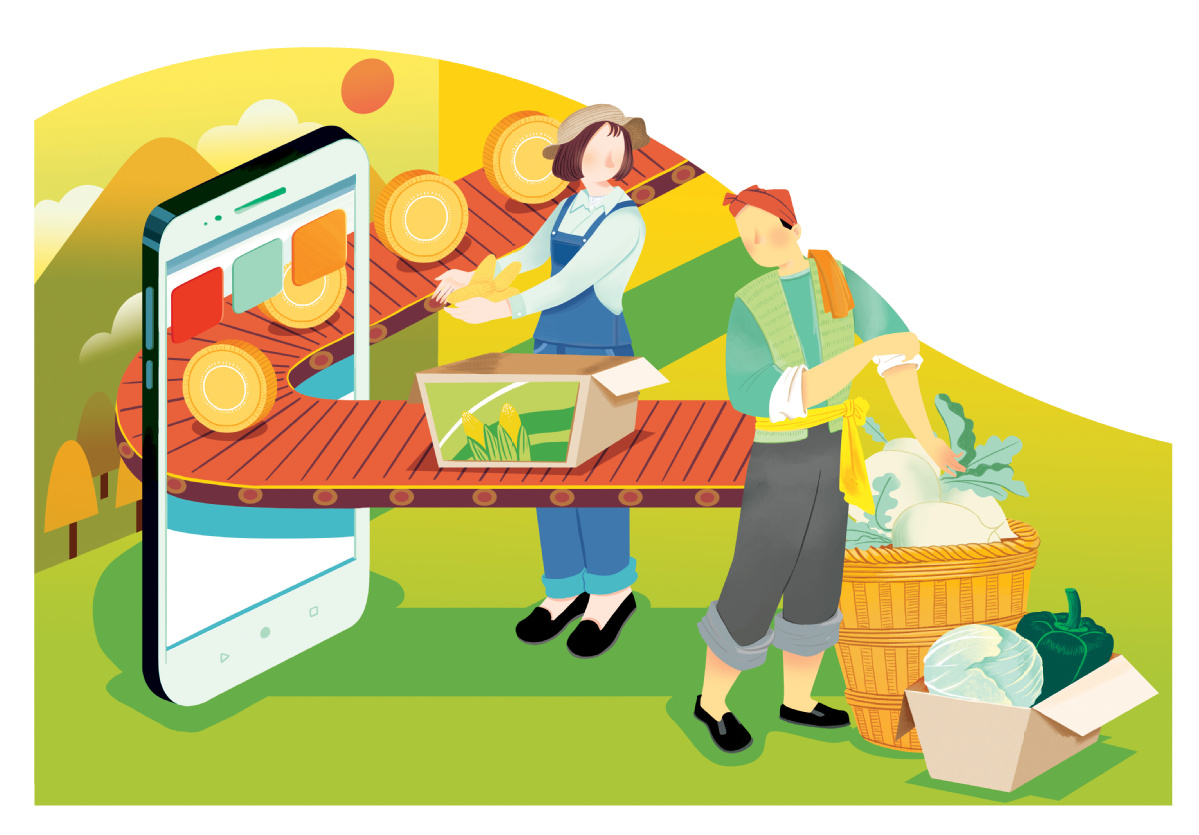 SHI YU/CHINA DAILY
SHI YU/CHINA DAILY
Government departments and State-owned enterprises urged to make purchases from poor regions
China will encourage urban residents to purchase services and agricultural products from people living in poverty-stricken areas to increase their incomes in a sustainable way and help them emerge from poverty.
The goal was unveiled in a 17-clause notice released by the State Council, China's Cabinet, last week that, in particular, urged government departments, State-owned enterprises, public institutions, universities and urban healthcare institutions to purchase products from poverty-stricken regions.
Supply chains for agricultural goods will be built up in less-developed rural areas, with improved infrastructure focusing on e-commerce and logistics. Developed regions have been told they should build partnerships for long-term supply with disadvantaged areas.
The quality of agricultural goods in poverty-stricken areas should be improved to build famous regional brands, the notice said, while logistics will be enhanced to expand sales of such products. Private enterprises are also encouraged to purchase goods and services from disadvantaged areas.
It is a form of poverty alleviation known as consumption-led poverty relief, which will see people from developed regions and cities buy more services and agricultural products from economically deprived regions and families.
The notice is the latest endeavor in China's poverty alleviation campaign. Experts said consumption-led poverty relief can stimulate the enthusiasm of people living below the poverty line and, more importantly, boost the sustainable development of local industries.
According to a three-year action plan released by the Central Committee of the Communist Party of China and the State Council in August, China still has about 30 million people to lift out of poverty by the end of next year.
In many poverty-stricken areas, government has built new houses for poor families or given them subsidies. However, questions remain about how they can make a long-term living after such assistance.
On many occasions, good harvests did not lead to increased incomes because farmers did not know how to sell their fruits and vegetables, said Yang Xiaobang, a poverty alleviation official in Majiahe village in Huoshan county, Anhui province.
Purchases of services and agricultural goods are an essential part of targeted poverty alleviation that will give stable incomes to locals living on one or two major means, Yang said.
The notice aims to build a better bridge between poverty-stricken families and consumers, the National Development and Reform Commission said last week. Even though poor regions produce many high-quality agricultural goods, they find it hard to sell them and often see harvests go to waste in their warehouses, the commission said.
Meanwhile, many consumers in cities also face high prices and problems finding supplies of good-quality food.
Therefore, the notice said, a number of model enterprises will be supported in large cities and poor regions to build supply chains that take agricultural products "from the farmland to the table" in a more efficient way, the commission said.
Mao Shoulong, a professor in public policy at Renmin University of China, said the notice is expected to benefit producers in less-developed areas, logistics companies and consumers in cities.
The participation of specialized companies will help improve branding and quality control for local producers, which can help them win bigger markets, Mao said. By using new logistics channels such as e-commerce companies, agricultural products from poor regions can be transported more quickly and sold at stable prices to consumers, he said.
For consumers, it may become easier to buy agricultural products of guaranteed quality at acceptable prices, while new means of poverty relief can help reduce costs for farmers and improve quality, Mao said. In this way, people in poverty-stricken areas can look forward to increasing incomes in the long term, he said.
"Measures in the notice are not only designed to lift people above the poverty line, but also further improve the quality of life in these regions, and lay a good foundation for economic growth by cultivating industries," he said.

